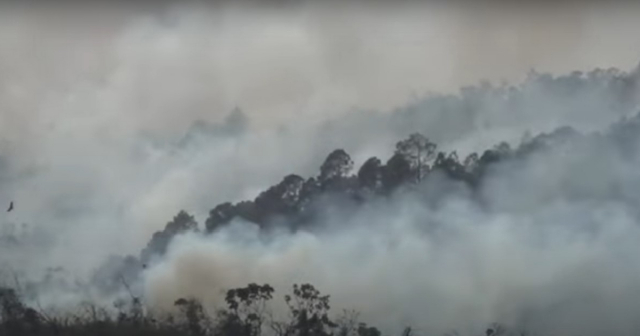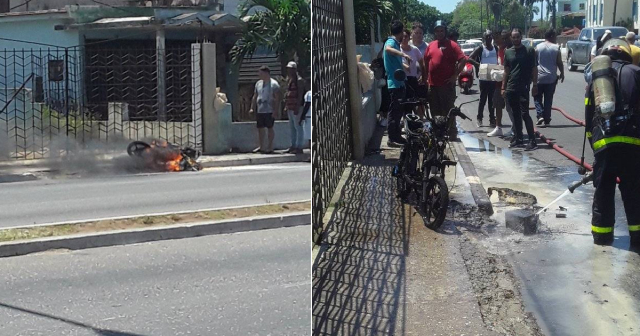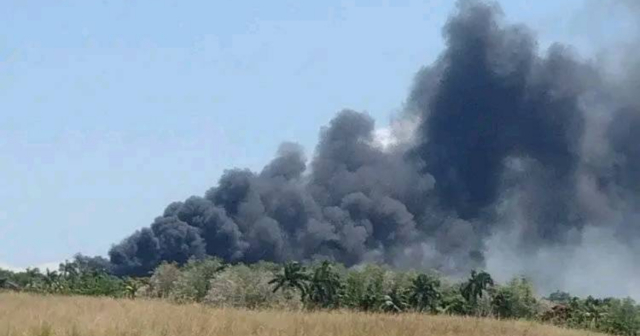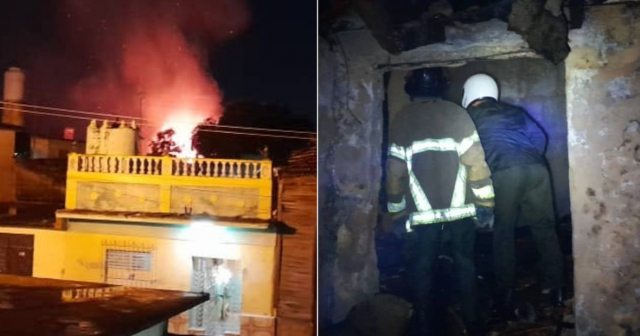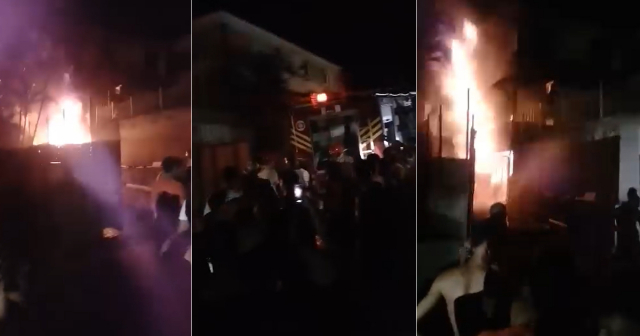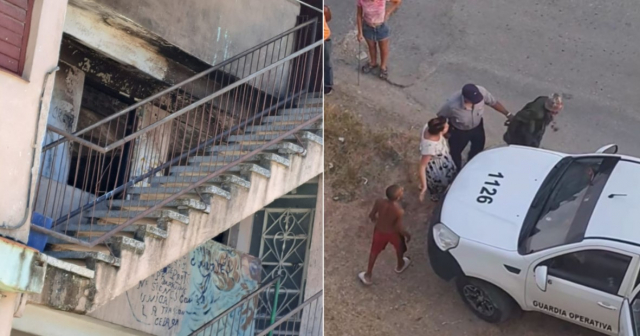A fire broke out on Monday night in a garbage dump in the Chicharrones neighborhood, in the city of Santiago de Cuba.
The fire broke out around 9 p.m. on E Street between C and 3rd Street, as reported on social media by journalist Yosmany Mayeta, who actively documents the main events of his province from Washington - thanks to his extensive network of followers.
The person who sent the information requested that their identity not be revealed, for fear of reprisals, and said that 'it seems that the fire was not intentional,' added the communicator.
A short video that was shared showed the firefighters who had just arrived at the scene preparing to extinguish the fire, which broke out near homes.
Despite there being no material or human damages, Yosmany Mayeta stated that the incident can be seen as "a wake-up call to the health authorities of the city, so that they promptly collect the large landfills in the urban area, following the serious epidemiological situation."
This Monday, the Ministry of Public Health (MINSAP) of Cuba confirmed the presence in the province of Santiago de Cuba of cases of Oropouche fever, a viral disease transmitted by mosquitoes and flies.
The official statement released by MINSAP indicated that following “monitoring and surveillance actions of non-specific febrile syndromes in the province of Santiago de Cuba, the presence of the Oropouche virus was identified in two health areas of the municipalities of Santiago de Cuba (Ernesto Guevara) and Songo La Maya (Carlos J. Finlay), based on samples studied at the national reference laboratory of the Pedro Kourí Institute (IPK).”
The Ministry of Health says that all cases have evolved favorably with an improvement in symptoms between the third and fourth day from the onset of the illness.
In subsequent statements, Francisco Durán García, National Director of Epidemiology at the Ministry of Public Health (MINSAP) of Cuba, warned about the confirmed presence in the country for the first time of the Oropouche virus and cautioned that although the clinical picture is not severe, it should not be underestimated.
Unlike dengue and other diseases, which are transmitted by the bite of the Aedes aegypti mosquito, Oropouche is transmitted by the Culicoides paraensis midge - which is present in the Americas region - but also by the Culex quinquefasciatus mosquito.
Durán García explained that the species of Culicoides paraensis sand fly has not been detected in the country, but the Culex quinquefasciatus mosquito is present, which breeds in any type of water including sewage and contaminated water, exacerbating the danger in Cuba given the poor hygiene.
“The worst part is that it breeds in any pool of water, even in sewage water, in accumulations of water of any kind. Its control requires a lot of popular participation,” noted the specialist in statements to Cuban Television.
"It exists in all provinces, in all municipalities, in all regions... It is the mosquito that is very bothersome mainly during the nighttime hours," Durán García said about the Culex quinquefasciatus mosquito.
The accumulation of garbage and leaks of sewage water proliferate in some neighborhoods of the city of Santiago de Cuba, a phenomenon that unfortunately extends throughout the country.
It is not the first time in recent months that mysterious fires have broken out in landfills in different provinces.
In February, a fire broke out in the Santa Clara landfill, which originated in a nearby forest and covered part of the city in smoke.
Previously, on the night of January 5th, residents of the Lawton neighborhood in the municipality of Diez de Octubre, in Havana, had reportedly decided to set fire to the accumulated garbage in a massive landfill at the corners of San Anastasio and Carmen streets.
Last November, a huge garbage dump surrounding a warehouse in Centro Habana also caught on fire.
What do you think?
COMMENTFiled under:

